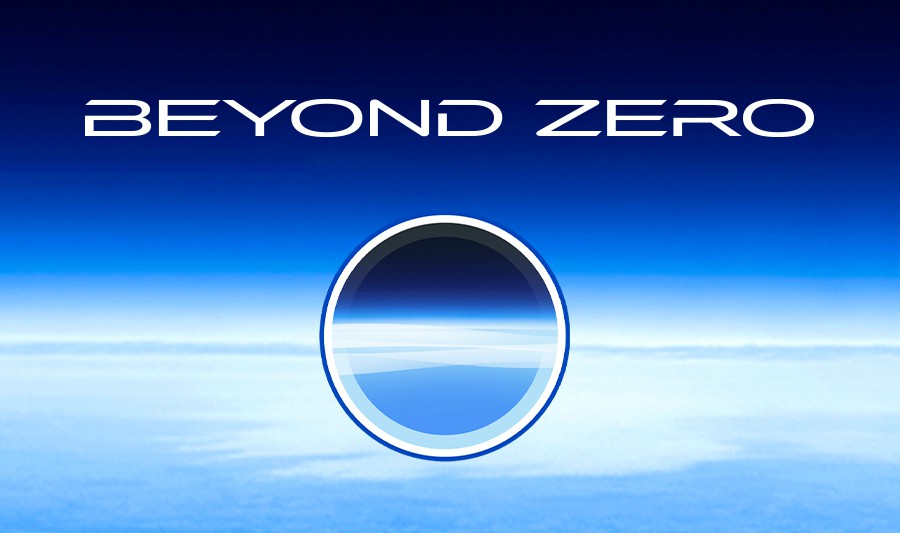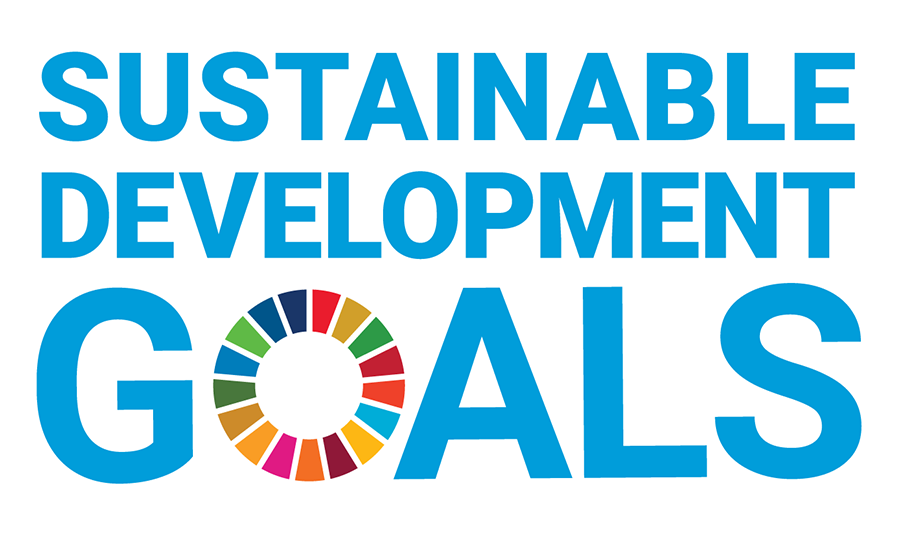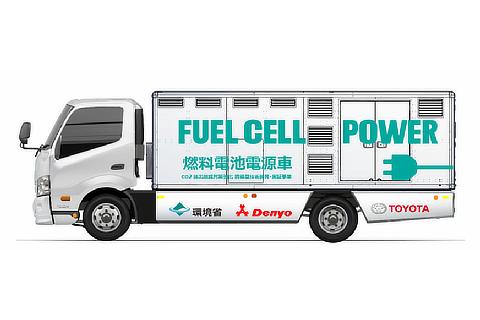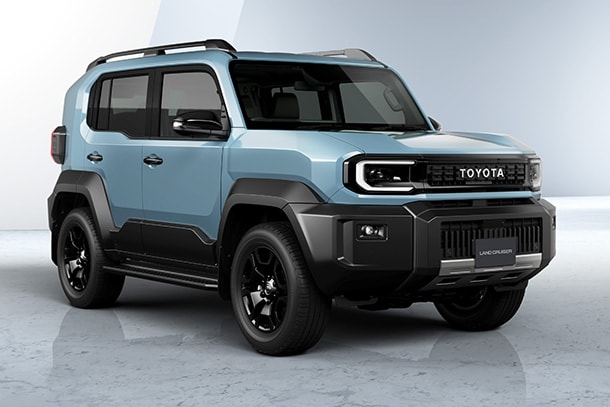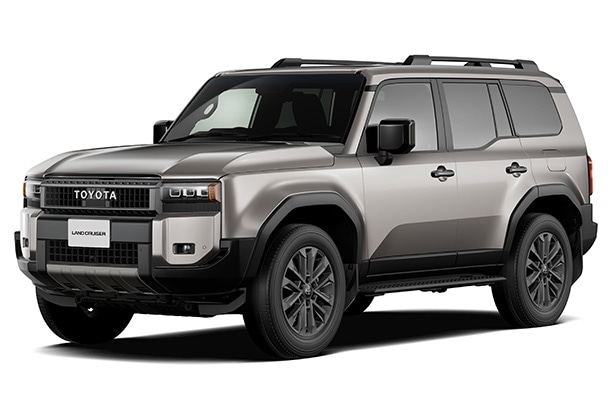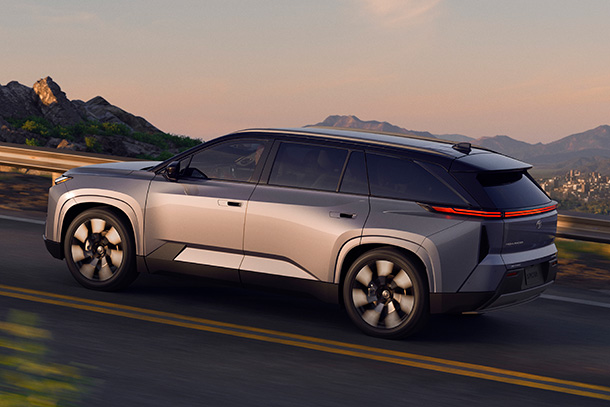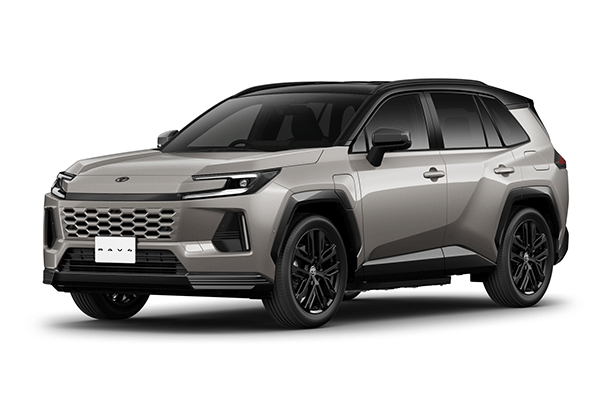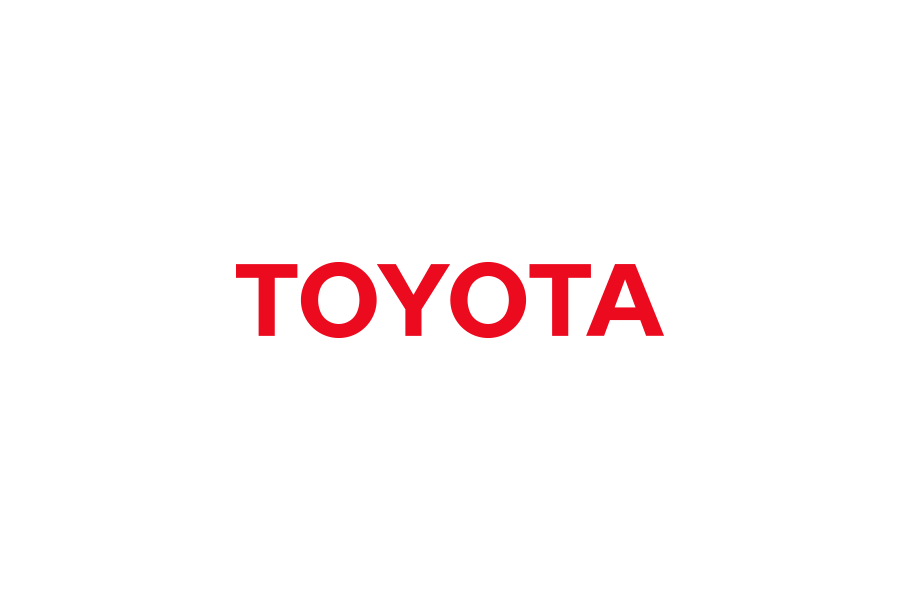Sep. 17, 2020
Denyo and Toyota Jointly Develop and Start Verification Tests for Fuel Cell Power Supply Vehicle that Uses Hydrogen to Generate ElectricityEnvironment-friendly vehicle reduces CO2 emissions, supplies continuous power for approximately 72 hours during disasters
Toyota Motor Corporation
Toyota City, Japan, September 17, 2020―Denyo Co., Ltd. (Denyo) and Toyota Motor Corporation (Toyota) announce today that they have jointly developed a fuel cell power supply vehicle that uses hydrogen to generate electricity. As a leading manufacturer of mobile (portable) generators, Denyo will work with Toyota to start verification tests with the aim of commercializing it and to help create a sustainable society, which is one of the aims of the Sustainable Development Goals (SDGs)*1. The project has been selected by Japan's Ministry of the Environment as a "Low Carbon Technology Research and Development Program."
Denyo and Toyota are both actively engaged in efforts for the global environment as they see related problems as important issues for management. As such, they have jointly developed the fuel cell power supply vehicle based on a belief that making efforts to apply fuel cell technologies to commercial and industrial vehicles is needed to further reduce CO2 emissions. Together, the two companies have also pursued further possibilities wherein electrified vehicles, considered one important way that they can demonstrate their belief and provide back to society, are able to provide added value as a large-scaled power supply, delivering electricity when and where it is needed in a range of scenarios including disaster-stricken areas without power and entertainment venues such as outdoor concerts.
-

- Fuel cell power supply vehicle (illustration)
Many of the current generation of power supply vehicles use diesel engines to provide power to the vehicle on the road and when generating electricity. Using fossil fuels as energy, they emit substances of environmental concern when driving and generating electricity, including the greenhouse gases, carbon dioxide (CO2) and nitrogen oxide (NOx). Fuel cell power supply vehicles, on the other hand, use fuel cells to provide power. This eliminates the emission of substances of environmental concern, enables up to approximately 72 hours of continuous power supply, and provides water for showers and other uses as a by-product of power generation.
The Toyota/Denyo fuel cell power supply vehicle that was jointly developed this time is based on Toyota's "Dyna" light-duty trucks, equipped with the fuel cell system of Toyota's Mirai Fuel Cell Electric Vehicle (FCEV) as its power source. For its power supply unit, it uses a fuel cell power supply equipment developed by Denyo under a program subsidized by the Ministry of the Environment*2. The vehicle also carries about 65 kilograms of hydrogen (in 27 hydrogen tanks) for traveling long distances and generating power for long periods of time.
Verification tests for the vehicle will start in September 2020. It will be compared against conventional engine-based power generators to verify the unique characteristics of fuel cell power supply vehicles, including their impact on various load equipment and reductions of CO2 emissions.
As a socially responsible company, Denyo is actively engaged in business activities that are in harmony with the environment, and will also continue to actively develop fuel cell-based products as a leading manufacturer of mobile (portable) generators.
Toyota wants to dramatically reduce on-road CO2 emissions, which is one of its activities to help create the sustainable society targeted by the SDGs. To do so, the company will continue working hard to develop and promote the use of electrified vehicles, moving forward.
Basic Specifications of the Toyota/Denyo Fuel Cell Power Supply Vehicle
| Vehicle | Length × Width × Maximum ground clearance | 6.380 × 2.220 × 2.240 m |
|---|---|---|
| Total weight | 7.265 t | |
| Hydrogen capacity | Number of high-pressure hydrogen tanks | 27 |
| Internal volume of tank | 1,626 liters | |
| Hydrogen storage mass | Approximately 65 kg | |
| Power supply | Rated output | 8.5 kW (total three-phase and single-phase output) |
| Power supply capacity | Approximately 612 kWh | |
| Rated voltage / number of phases / frequency | 100/200 VAC / three-phase four-wire and single-phase three-wire / 50/60 Hz | |
| Continuous power supply (Maximum output during generation: 8.5 kW) | Approximately 72 hours Notethe above power supply duration is estimated on the condition that the Fuel Cell Power Supply Vehicle will provide power after ensuring the amount of hydrogen driving for 100 kilometers one-way and 200 kilometers round-trip. |
|
| Water generation (Maximum amount generated) | Approximately 450 liters | |
| *1 | The Sustainable Development Goals (SDGs), adopted at the General Assembly of the United Nations in September 2015, are a set of international goals to be met by 2030. They are a comprehensive collection of 17 goals (social challenges) that can realize a sustainable society. |
|---|---|
| *2 | "Low Carbon Technology Research and Development Program," Ministry of the Environment Government of Japan |
"Achieving zero, and adding new value beyond it"
As part of efforts to pass our beautiful "Home Planet" to the next generation, Toyota has identified and is helping to solve issues faced by individuals and overall society, which Toyota calls "Achieving Zero," hoping to help reduce the negative impacts caused by these issues to people and the environment to zero. Additionally, Toyota is also looking "Beyond Zero" to create and provide greater value by continuing to diligently seek ways to improve lives and society for the future.
- About Beyond Zero
- https://global.toyota/en/mobility/beyond-zero/
Toyota Motor Corporation works to develop and manufacture innovative, safe and high-quality products and services that create happiness by providing mobility for all. We believe that true achievement comes from supporting our customers, partners, employees, and the communities in which we operate. Since our founding over 80 years ago in 1937, we have applied our Guiding Principles in pursuit of a safer, greener and more inclusive society. Today, as we transform into a mobility company developing connected, automated, shared and electrified technologies, we also remain true to our Guiding Principles and many of the United Nations' Sustainable Development Goals to help realize an ever-better world, where everyone is free to move.
- SDGs Initiatives
- https://global.toyota/en/sustainability/sdgs/
